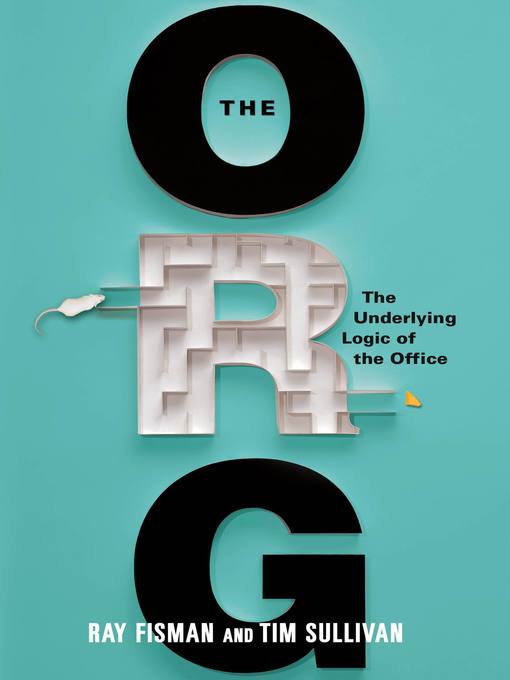
The Org
The Underlying Logic of the Office
کتاب های مرتبط
- اطلاعات
- نقد و بررسی
- دیدگاه کاربران
نقد و بررسی

October 8, 2012
Is corporate life really so bad? Columbia Business School professor Fisman and Harvard Business Review Press editorial director Sullivan have done an analysis of the modern office, and highlight the facets of it that are actually valuable and how they can be used to their best advantage. The authors spend some time considering how things got to be the way they are in the first place, and then dive into the meat of office organizational models that really work, such as the market-research-driven R&D of McDonald’s. Using examples of both traditional and surprising structures—HP, Kayak.com, the Catholic Church, Procter & Gamble, the U.S. Army, BP, the 9/11 Commission—the authors make a strong argument for the importance of good management and even for some of the harder-to-justify elements of office life, such as constantly distracted CEOs and dramatically high executive compensation. They propose that there’s much to be salvaged from our broken office culture; the book is not a defense of current structures, per se, but a levelheaded look at the pros of the Way Things Are Done, and a blueprint to improve it. The playful writing and thoughtful analysis make this an intriguing read for anyone interested in the structure of corporate America. Agent: Jay Mandel, William Morris Endeavor.

January 1, 2013
An investigation of organizations. A casual read of the news will frequently yield a story or two on a corporation or organization rotting from the inside--malfeasance, bungling product delivery, CEOs taking larger bonuses while pleading for more tax breaks, etc. Many of us are just ordinary Joes who don't understand how office culture can be so toxic; simultaneously, we're often cogs in the machine. Fisman (Social Enterprise/Columbia Business School) and Harvard Business Review Press editorial director Sullivan take this study of "the underlying logic of the office" beyond the common communication breakdown between management and labor, examining the balance of incentive-based rewards with fostering intrinsic motivations. Hewlett-Packard, they find, started with an emphasis on the latter and moved, as the company grew, toward the former. The authors explore a wide variety of organizations, deconstructing, reconstructing and questioning the different structures and their efficacy in fitting together to achieve the larger objective. Without the strict hierarchy provided by the Catholic Church, write the authors, the United Methodist Church is both freed and burdened with a greater flexibility at the local level to meet the tenets in their mission statement. This particular section of the book asks a question directly that is approached less specifically in other places: Does the idea of using incentive pay for pastors increase the number of souls those pastors might save? A mostly intriguing study of business and other organizations and the "trade-offs that [they] face as they grow and evolve."
COPYRIGHT(2013) Kirkus Reviews, ALL RIGHTS RESERVED.

February 15, 2013
This is a tour through the history of modern corporations, as seen through the lens of organizational economics. Fisman (social enterprise, Columbia Univ.) and Sullivan (editor, Harvard Business Sch. Pr.) have combined forces to examine what makes organizations and executives tick and why we should care. They offer many interesting tidbits about corporations and executives, describing, for instance, how Henry Ford doubled the daily wage on his assembly line as a cost-cutting measure, because of its effect on employee retention. That decision, the authors maintain, can be seen as an early precursor of the comprehensive perks offered today at high-tech firms such as Google. Studies on organizational efficiency and corporate culture are cited frequently, with examples ranging from McDonald's Hamburger U. to the drastic change in culture at the FBI since the 9/11 attacks. VERDICT This well-written title is composed mainly of vignettes and anecdotes illustrating why companies do what they do, but doesn't offer much new information. Recommended only for larger business collections.--Susan Hurst, Miami Univ. Libs., Oxford, OH
Copyright 2013 Library Journal, LLC Used with permission.

























دیدگاه کاربران